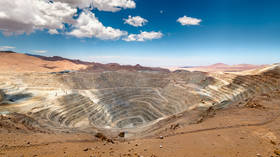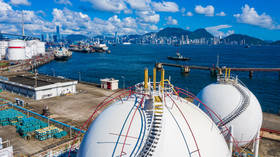Chinese investment can help Serbia become major copper producer – Bloomberg

China is planning a major expansion of copper mining in Serbia as demand for the metal, which is crucial for global energy transition, is expected to overrun supply, Bloomberg reported on Monday.
Zijin Mining Group, China’s largest gold miner and one of the country’s top copper producers, is due to boost the extraction of copper in its Cukaru Peki copper and gold mine in Eastern Serbia, the outlet said.
The company opened the Cukaru Peki works about two years ago and has already invested $678 million to bring the pit into operation. Now China wants to drill further down, almost two kilometers, to reach more reserves.
“These are vast reserves, which require additional infrastructure, additional investment of around $3.5 billion to $3.8 billion,” said Branko Rakocevic, the top Serbian official at the mine told Bloomberg.
The mine, located in the eastern Bor region, is divided into an upper and a lower zone. Production at the upper area reached 111,000 tons of copper and 152,000 ounces of gold last year. Its projected capacity is estimated at 91,400 tons of copper and 2.5 tons of gold annually, with potential peak outputs of 135,000 tons of copper and 6.1 tons of gold.
Once both zones reach their full capacity, the Cukaru Peki mine may elevate Serbia to the position of Europe’s second-largest copper-producing country.
The race over producing materials vital to the green-energy transition has intensified around the world, with China becoming the world’s top-supplier of so-called critical minerals. In particular, copper is used in wind turbines, power grids and electric vehicles.
“Copper is in demand always and everywhere” which justifies the long-term investment, Rakocevic said. “The market is stable enough. Prices declined from last year, but we don’t expect much volatility.”
According to consulting firm McKinsey, the world’s transition to a greener economy will boost annual copper demand to 36.6 million tons by 2031. Supply is predicted to hit around 30.1 million tons by the same year, from the current 22 million tons, creating a 6.5-million-ton shortfall at the start of the next decade.
For more stories on economy & finance visit RT's business section














